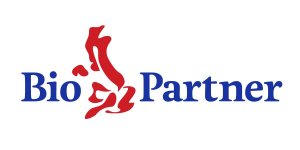
APIM Therapeutics AS 
APIM Therapeutics AS is a preclinical biotech company developing novel peptide anti-cancer drugs for various oncology indications.
Targeting a novel, stress-induced therapeutic intevention point, the company’s current preclinical lead, ATX-101, sensitizes cancer cells to the action of >15 different chemotherapeutic drugs across multiple indications. The company has achieved proof-of-concept in selected in vivo and ex vivo cancer models of solid tumors (e.g. bladder, prostate) and blood cancer (myeloma, leukemia) in combination with >5 clinical drugs.
APIM Therapeutics is venture capital financed. Current investors include Sarsia Seed, Birk Venture, Ro Invest and NIK. The company is seeking to raise additional funding in 2012-2013 in order to drive continuous preclinical development of ATX-101 to IND within a period of 18 months.
Dr Konstantinos Alevizopoulos
Chief Executive Officer
Digna Biotech
DIGNA Biotech is a private biotechnology company headquartered in Pamplona (Spain), with offices in Madrid and Pennsylvania (USA). It was founded in 2004 as a spin-off of the University of Navarra. The firm currently has a pipeline of 9 products at different stages of development in 3 therapeutic areas: Inflammatory/Autoimmune, Cardiovascular and Liver diseases.
Digna Biotech is seeking private funding to spin out a new biotech company to conduct Phase IIb and Phase III trials of its more advanced candidate, a cytokine inhibitor for the treatment of patients with Systemic Sclerosis and Localized Scleroderma. The product (Disitertide) has already completed Phase I, Phase IIa and open-label extension (OLE) clinical trials under a topical formulation in patients with systemic sclerosis. Orphan drug designation by both FDA and EMA has been granted in the two indications.
Juan Ruiz
COO and CMO
Ipsen 
Ipsen is a global specialty-driven pharmaceutical company with total sales exceeding €1.1 billion in 2011. Ipsen’s ambition is to become a leader in specialty healthcare solutions for targeted debilitating diseases. Its development strategy is supported by four franchises: neurology / Dysport®, endocrinology / Somatuline®, uro-oncology / Decapeptyl® and hemophilia. Moreover, the Group has an active policy of partnerships. R&D is focused on innovative and differentiated technological patientdriven platforms, peptides and toxins. In 2011, R&D expenditure totaled more than €250 million, above 21% of Group sales. The Group has total worldwide staff of close to 4,500 employees.
Ipsen’s shares are traded on segment A of Euronext Paris (stock code: IPN, ISIN code: FR0010259150) and eligible to the “Service de Règlement Différé” (“SRD”). The Group is part of the SBF 120 index. Ipsen has implemented a Sponsored Level I American Depositary Receipt (ADR) program, which trade on the over-the-counter market in the United States under the symbol IPSEY. For more information on Ipsen, visit www.ipsen.com.
SuppreMol GmbH 
SuppreMol, a privately held biopharmaceutical Company, is developing novel proteins to treat autoimmune diseases. SuppreMol has developed a novel therapeutic concept for the treatment of autoimmune diseases that relies on naturally produced Fc gamma receptors (FcγRs). The Company was founded in 2002 as a spin-off from the Max Planck Institute of Biochemistry.
The Company is developing SM101 for the treatment of Primary Immune Thrombocytopenia (ITP) and Systemic Lupus Erythematosus (SLE) in Phase II clinical trials. SM101 is designed to be a specific, early onset, long lasting and well tolerated treatment for autoimmune diseases such as ITP, SLE, Rheumatoid Arthritis (RA) and Multiple Sclerosis (MS).
Further building its platform of selective immunoregulators, SuppreMol is working on antibody programs targeting Fc receptors and other immunomodulatory molecules for alternative treatment strategies in autoimmune conditions.
Professor Peter Buckel
Chief Executive Officer
Virometix AG
Virometix is a privately held young innovative Swiss Biotech company developing a new class of vaccines, which should overcome limitations of current biological vaccines in terms of safety, efficacy, speed, stability and manufacturing cost. Virometix Synthetic Virus-Like Nanoparticle (SVLP) technology platform offers the following value propositions:
Safety. Virometix SVLP-based vaccines avoid the use of life pathogens and the safety concerns associated with the biological manufacturing processes used for conventional vaccines.
Quality. SVLPs are based on a proprietary lipopeptide self-assembly process that leads to atomically defined nanoparticles with a constant size and number of lipopeptide monomers per particle, which increases the specificity and quality of the elicited immune response and assures lot-to-lot consistency.
Efficacy. SVLPs efficiently deliver antigens to antigen presenting cells for optimal B- and T-cell responses and induce antibodies that bind with very high affinity to the native target antigen.
Convenience. SVLPs do not require sonication, refolding, extrusion or similar processes. SVLPs can be prepared by simply dissolving freeze-dried lipopeptide monomers in a buffer suitable for injection shortly before use.
The protective potential of Virometix nanoparticles has been demonstrated for various targets in in vitro and in vivo. Virometix currently develops vaccines for infectious diseases and cancer and offers collaborative research and licensing partnerships for selected vaccines in these areas, and licensing opportunities for selected areas outside Virometix core focus.
Arin Ghasparian
CEO
XIBER Science GmbH 
Xiber is a biopharmaceutical start–up company. Xiber develops new peptide drugs to improve outcome of critical care & transplant patients. Xiber’s peptide drugs preserve organ function & prevent organ failure. Xiber will enter market by two niche indications: Acute Lung Injury & Primary Graft Dysfunction after Lung Transplantation – with a total market volume of 630 Mio. USD.
In 2015 Xiber will complete the preclinical development for both indications. A phase I clinical trial will start in the beginning of 2016.
Xiber is a spin-off of the Medical University of Vienna. The majority of the shares is owned by the founders. The University holds a non-controlling interest and rewards its shares by providing cooperation, infrastructure, facility services and management support.
To drive its developmental program till the completion of a phase I trial Xiber needs ~ 4 Mio €. This is largely covered by Austrian funds and loans. For the remaining Xiber seeks 2 Mio € equity from VC partner. Xiber has already signed a LOI with an established VC company.





